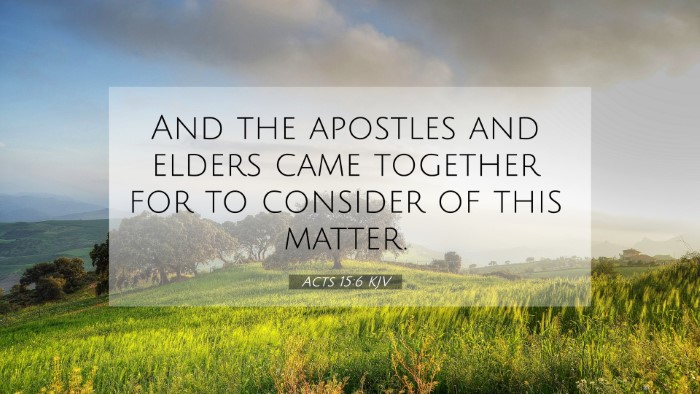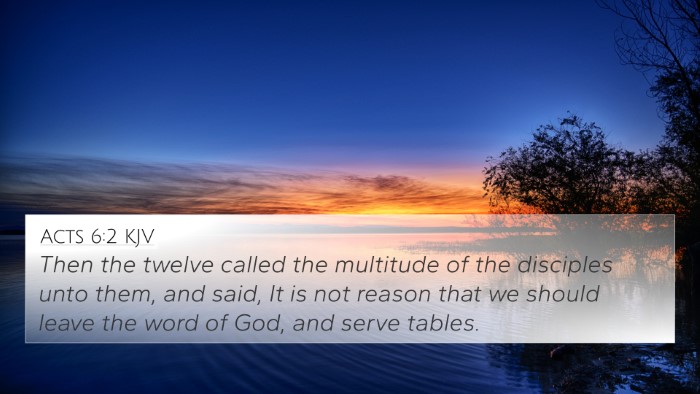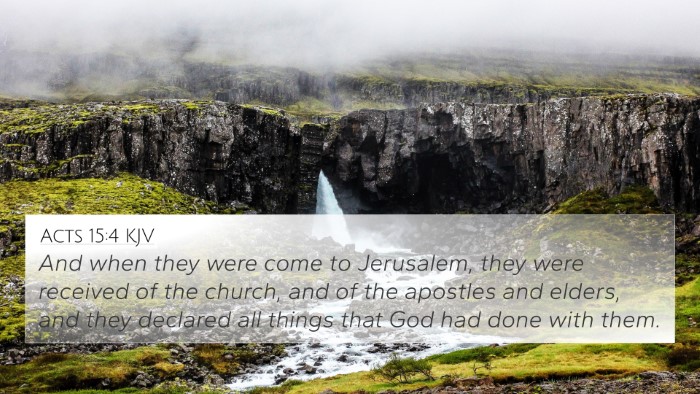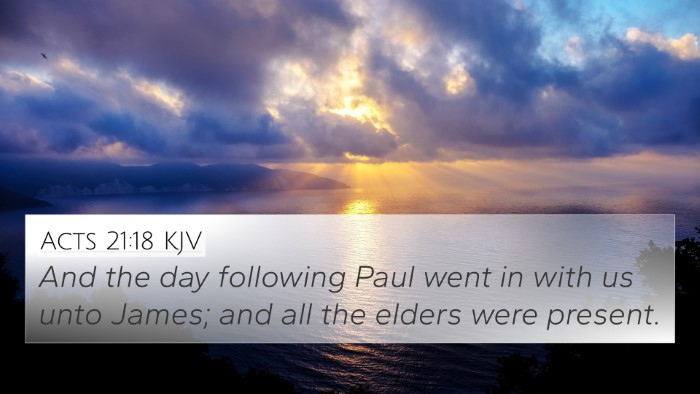Understanding Acts 15:6
Acts 15:6 states: "And the apostles and elders came together for to consider of this matter." This verse takes place during a significant meeting in the early Christian church concerning the role of Gentile believers and the requirements for salvation.
Contextual Overview
This meeting, known as the Jerusalem Council, convened to address a critical issue: whether Gentiles converting to Christianity should be required to follow the Mosaic Law, particularly circumcision. The implications of this discussion were profound, as it could alter the understanding and practice of faith for both Jewish and Gentile believers.
Commentary Insights
Matthew Henry
Matthew Henry emphasizes the unity and collaboration of the apostles and elders in this verse. They recognized the need to come together to make a decision that had wide-ranging implications for the church. He notes that such gatherings are essential for addressing doctrinal matters and maintaining church harmony.
Albert Barnes
Albert Barnes highlights the importance of collective deliberation in the church. He indicates that the apostles and elders sought to consult one another rather than making unilateral decisions, illustrating a model of governance and accountability in spiritual matters.
Adam Clarke
Adam Clarke points out the significance of this moment in church history. He argues that the decisions made here would clarify the understanding of grace and faith versus works, an ongoing theological debate. Clarke also notes the significance of the "elders" in this context, suggesting that authority in the early church was shared among leaders.
Thematic Connections
Acts 15:6 can be related to several key themes and verses within the New Testament. Here are some relevant cross-references:
- Matthew 18:20: "For where two or three are gathered in my name, there am I among them." - This emphasizes the power of collective prayer and decision-making.
- Galatians 2:1-2: Discusses Paul's visit to the apostles in Jerusalem to ensure his message aligned with theirs, confirming the importance of this council.
- Acts 11:15-18: Describes Peter’s vision regarding the Gentiles and the gentle acceptance of their conversion, foreshadowing the council’s discussion.
- Romans 10:12-13: Highlights the inclusiveness of salvation for both Jews and Greeks, pivotal in the council's decision-making.
- Titus 1:5: The importance of appointing elders in every town for orderly governance and doctrine, aligning with the role of the elders at the council.
- 1 Peter 5:1-2: Encouragement for church leaders to shepherd God’s flock, reflecting discussions on leadership that day.
- Acts 2:42: Illustrates the early church's commitment to fellowship, teaching, and prayers, fundamental to early Christian unity.
Cross-Referencing Biblical Texts
Through Scripture, we can identify numerous connections between Bible verses that provide deeper understanding and thematic coherence:
- Galatians 5:1 - Emphasizes standing firm in the freedom of Christ, relevant to the Council's discourse on the law.
- Philippians 1:27 - Encourages standing firm in one spirit, crucial for the unity sought in the Jerusalem Council.
Tools for Bible Cross-Referencing
To facilitate a deeper study, various resources can help identify and explore connections between Bible verses:
- Bible Concordance: A helpful tool for locating verses and their cross-references.
- Cross-reference Bible Study: Methods that enable the reader to see links across scripture.
- Bible Reference Resources: Materials such as commentaries and study guides that promote understanding of scripture connections.
Conclusion
In summary, Acts 15:6 serves as a pivotal moment in the early church, showcasing the vital process of collective decision-making among spiritual leaders. It illustrates the commitment to ensuring that salvation is understood as a gift of grace available to all, which leads to a crucial shift in how Gentile believers are accepted into the faith community. Understanding this verse sets the stage for appreciating the broader theological discussions found throughout the New Testament.










